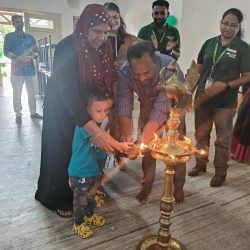Pallium India’s World Health Day Interview with UNODC
 On April 7th, the World Health Organization‘s World Health Day 2011, the United Nations Office on Drugs and Crime published an interview with Pallium India’s Chairman, Dr M R Rajagopal, where he shares his thoughts on increasing the availability of opiod analgesics for patients in India, through balanced regulatory mechanisms:
On April 7th, the World Health Organization‘s World Health Day 2011, the United Nations Office on Drugs and Crime published an interview with Pallium India’s Chairman, Dr M R Rajagopal, where he shares his thoughts on increasing the availability of opiod analgesics for patients in India, through balanced regulatory mechanisms:
India: The principle of balance to make opioids accessible for palliative care
In the state of Kerala in South India, Dr M R Rajagopal has been working in the field of ‘Palliative Care’ for over twenty years. As the Chairman of Pallium India, he and his team have been working to increase the availability of such drugs for patients. UNODC South Asia interviewed him to understand the dimensions of the situation in India and also some of the effective solutions that have been tried to improve access to these drugs, while ensuring that they are not diverted for illicit purposes.
The questions asked by UNODC:
- Please explain what is Palliative Care. How does it relate to drug control?
- What is the scenario regarding the availability of these opioid drugs in India?
- Can you explain what these regulatory procedures are?
- You have been working in this area for over twenty years. Can you share some of your experiences and some good practices that are being followed?
- What do you think needs to be done further to increase availability of opioids for palliative care?
Read the full interview & answers to these questions on the UNODC blog…




